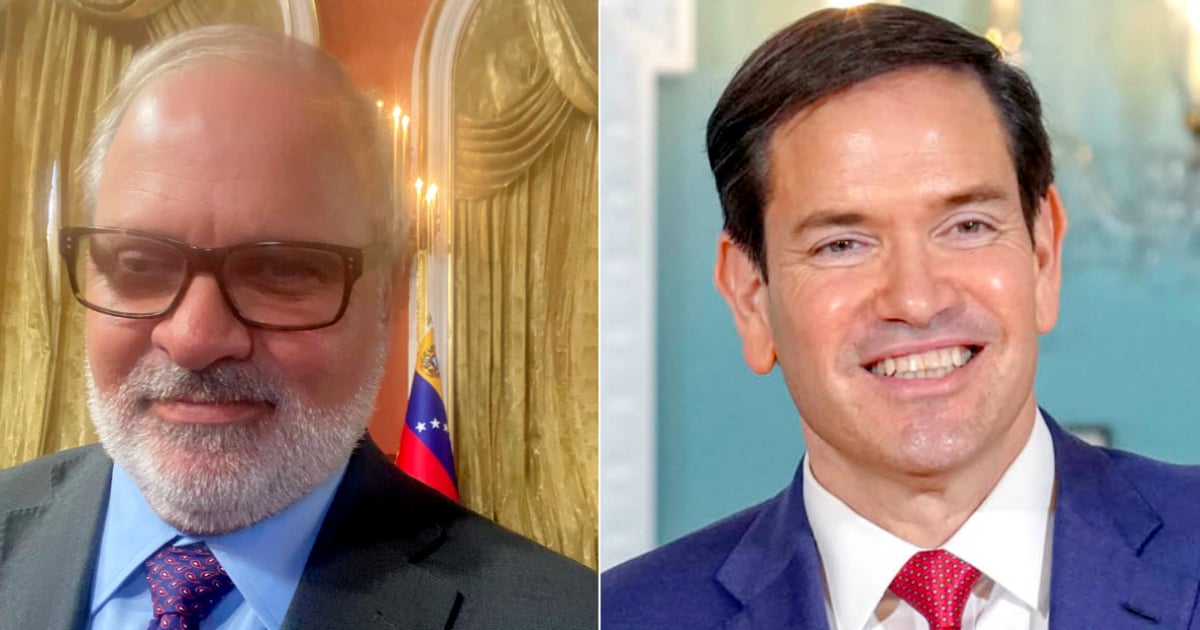In the wake of the potential implications of the newly signed National Security Presidential Memorandum (NSPM-5) by President Donald Trump, the Cuban regime is still reacting. On Monday, the director general for Latin America and the Caribbean at Cuba's Ministry of Foreign Affairs (MINREX), Eugenio Martínez Enríquez, quickly condemned the United States' latest policy shift towards Cuba, claiming it contains "several contradictions."
Using social media as a platform, Martínez Enríquez mocked the U.S. for promoting more freedom and democracy in Cuba while simultaneously imposing "restrictions on financial transactions and travel."
However, the memorandum's rationale is transparent: to intensify pressure on a totalitarian regime that has suppressed the rights of Cuban citizens for decades, preventing them from enjoying fundamental freedoms such as freedom of expression, association, independent entrepreneurship, or plural political participation.
The Economic Leverage
It's particularly audacious for a senior MINREX representative to challenge measures meant to sever the flow of resources to military and intelligence entities like GAESA, an economic conglomerate controlled by the Armed Forces that dominates much of the national economy, while the Cuban populace endures shortages and hardships.
The accusation of "economic coercion" falls flat when coming from a regime that has long used control and dependency as tools of domination. A state that stifles the development of a truly independent private sector and punishes citizens for attempting to generate wealth outside state channels should not speak of liberties.
U.S. Strategy: Support for the People, Not the Regime
The memorandum, updating the NSPM-5 from 2017, underscores the U.S.'s commitment to supporting the Cuban people, not the government that oppresses them. These measures are not aimed at hindering citizens' lives but at weakening the structures that suppress them.
Promoting free Internet access, backing independent media, encouraging private enterprise, and tightening control over disguised tourist travel are steps designed to foster citizen autonomy against an omnipresent and abusive state.
The Reality of Cuban Governance
Martínez Enríquez, acting as the spokesman for the Cuban regime's diplomatic machinery, resorts to a narrative of resistance that crumbles under the reality of a nation seized by a kleptocratic elite. This "elite" has impoverished and alienated the population, triggered the largest migratory exodus in its history, and resists acknowledging its failures and the public's disaffection to maintain its grip on power.
In Cuba, there is no separation of powers or independent institutions. All authority is concentrated in a single-party system that has erased democratic checks and balances, ruling through control of the armed forces, intelligence agencies, state media, and repressive apparatuses.
Pathway to Democratic Transition
In this context, the measures backed by the United States are anything but incoherent; they are part of a clear strategy. Without external pressure, democratic transition in Cuba is unattainable. The regime has shown no willingness to open up, instead escalating repression against peaceful protesters, artists, independent journalists, and any form of civic organization.
The freedom advocated by Washington is neither abstract nor conditional. It is the possibility for Cubans to live in a country where their rights are respected, where they can start businesses, protest, choose, and be chosen, without fear of repression or exile.
This freedom will not be achieved as long as the regime maintains its control, propaganda, and repressive apparatus intact, along with the mechanisms that finance it. What the United States proposes, ultimately, is a roadmap to a Cuba where free, multiparty elections are held with the participation of all sectors within the country and the diaspora. A Cuba where the future is not held hostage by a clique that enriches itself at the expense of millions' sacrifices.
To call this a "contradiction" is, at best, a crude attempt to manipulate discourse. At worst, it is further evidence of the arrogance of those who defend the indefensible: the perpetuation of a failed and repressive system that denies Cubans the right to be free and live with their differences, protected by the rule of law in their own land.
Understanding U.S.-Cuba Relations
What is the purpose of the NSPM-5 memorandum?
The purpose of the NSPM-5 memorandum is to apply pressure on the Cuban regime by restricting financial transactions and travel, thereby supporting the Cuban population and undermining the structures that oppress them.
How does the Cuban government respond to U.S. policies?
The Cuban government typically responds with rhetoric criticizing U.S. policies as contradictory, despite the measures being aimed at promoting freedom and autonomy for Cuban citizens.
